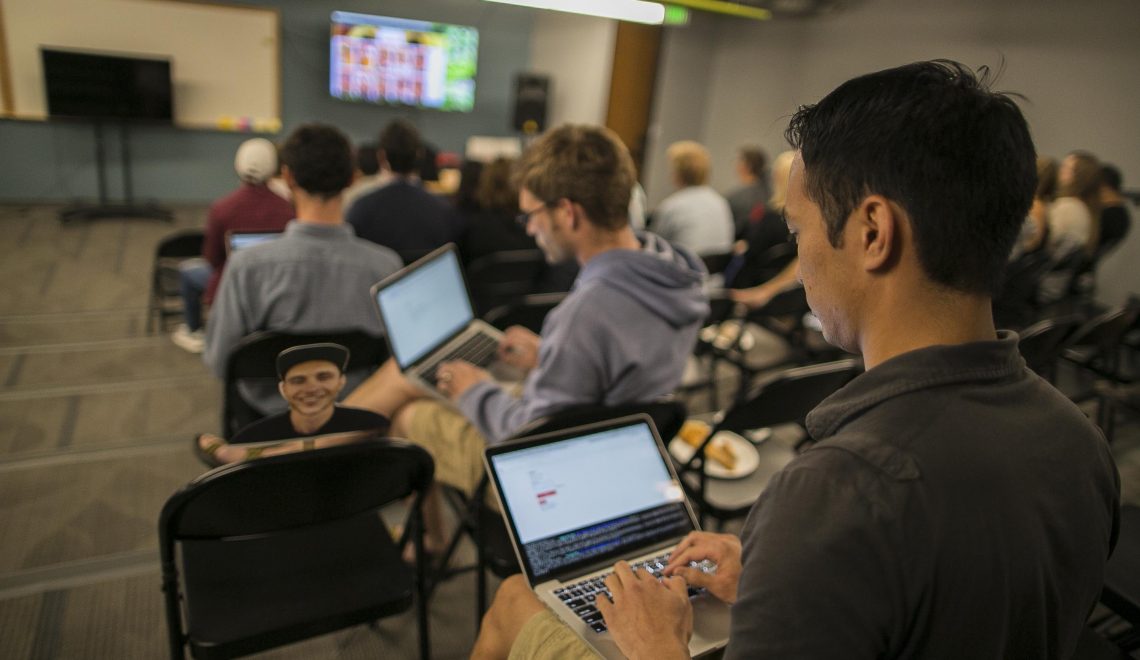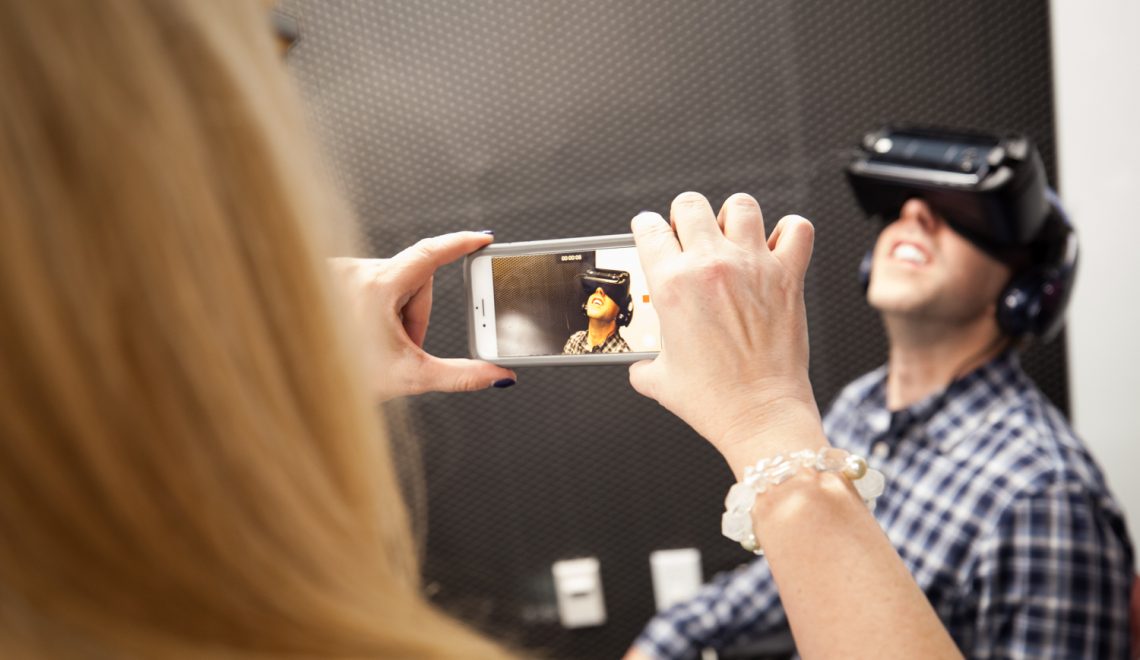Story and photos by Veronica Penney
The sixth annual installment of Denver Startup Week just wrapped up, and included roughly 350 panels, lectures, workshops, and meetups, and drew more than 13,000 participants.
The afternoon of Mon., Sept. 25, featured a panel on “How to Leverage Public/Private Partnerships to Help Grow Your Business.” Public and private partnerships are gaining popularity in the tech space as universities and businesses work together to solve industry problems. A notable example can be found in the Comcast Media and Technology Center (CMTC) at the University of Colorado at Denver.
The CMTC was formed through a dialogue between UC Denver and Comcast, which contributed five million dollars to the project. At the facility, College of Engineering students, College of Arts and Media students, faculty, and Comcast personnel all work hand-in-hand on projects and research.
We're a participant in this ecosystem. The Comcast Media & Technology Center at @CUDenver is here to drive value into Denver #DENStartUpWeek pic.twitter.com/LhVaWi2bJN
— Comcast Colorado (@ComcastColo) September 25, 2017
To answer questions about starting a public-private relationship how they can benefit universities and businesses alike, a panel of industry experts delved into the pros, cons, and first steps in forming these partnerships.
Matt McConnell, Senior Vice President at Comcast, was part of the team that founded the CMTC. According to McConnell, “The real genesis was, ‘Is there a way to get university talent and thinking more closely aligned with industry talent and thinking?’”
McConnell views the partnership as being beneficial to both Comcast and to the University and its students. From a business point of view, the partnership offers Comcast the resources required to think about future problems and the direction that the tech industry is headed.
“I don’t know what the world is going to be like in five years or ten years or 15 years,” says McConnell. “But if you have the right people, smart people, working together in a framework that enables growth and next-gen thinking, you’ll get there. That was our thinking.”
For UC Denver, the partnership brings the institution one step closer to preparing its students for the working world.
“If you just learn by rote, and you just learn by the books, it’ll only prepare you to a certain degree. From a university’s point of view, how do you create situations where real-world learning occurs?” asks Brian DeLevie, Co-Director of the Comcast Media and Technology Center.
When it comes to forming a partnership with a university, DeLevie notes that approaching the institution can feel intimidating. Universities are large organizations, bustling with activity, and it can be difficult to identify the proper point of contact. Universities are also perceived as having little interest in business, which DeLevie argues is not the case.
At the CMTC, students work on problems ranging from open spaces redevelopment and schoolyard renovations, to strategic communications strategies and bicycle transportation infrastructure. The list of research items is generated by the partnership through Comcast and the university.
DeLevie explains that research follows the problem. “It’s not the university going to the municipality and saying, well we’re going to work on just this one thing,” says DeLevie. “It’s literally working with the municipality and saying, ‘What kind of problems are you facing?’”
When it comes to forming a private-public partnership, “There has to be a lot of goodwill and then there has to be patience, because is extra effort,” observes Michael Jensen, Associate Vice Chancellor for Research and Creative Activities, University of Colorado Denver. “But I think that the potential reward for that extra effort can surpass anything that you could do separately.
Jensen points to a decrease in large government grants for universities as an open door for businesses to help fund projects and joint research. These partnerships also allow faculty to see their research at work in the industry.
“If that generates anything beyond a paper or grant or IP, that’s perfectly fine,” says Jensen. “Just having the notion that we can solve a societal problem and contribute toward that, that quite often is enough for faculty.”
For more information on the Comcast Media and Technology Center, check out the University of Colorado at Denver website.




